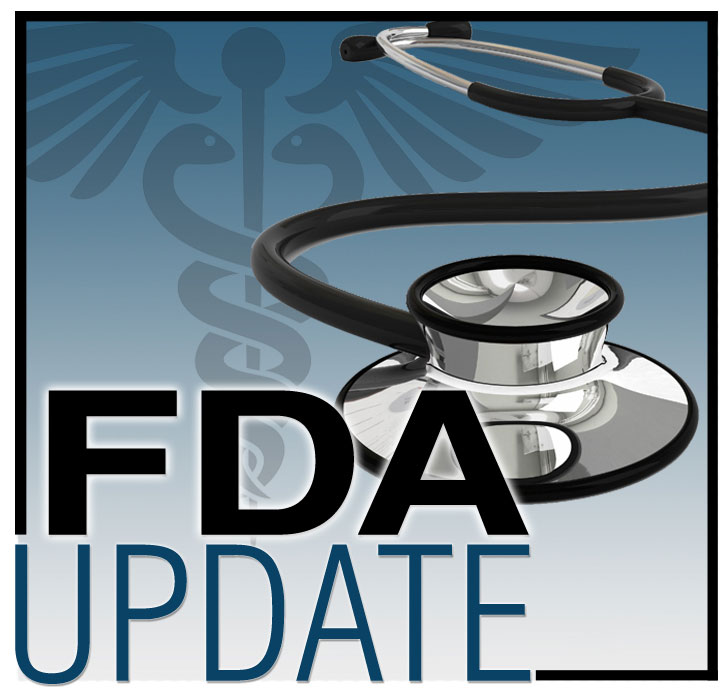
On August 30, 2017, the U.S. Food and Drug Administration (FDA) granted regular approval to tisagenlecleucel (Kymriah®, Novartis Pharmaceuticals Corp.) for the treatment of patients up to age 25 years with B-cell precursor acute lymphoblastic leukemia (ALL) that is refractory or in second or later relapse.
Tisagenlecleucel is the first chimeric antigen receptor (CAR) T-cell immunotherapy approved by the FDA. Tisagenlecleucel consists of autologous T cells collected in a leukapheresis procedure that are genetically modified with a new gene containing a CAR protein allowing the T cells to identify and eliminate CD19-expressing normal and malignant cells.
Approval of tisagenlecleucel was based on a single-arm trial of 63 patients with relapsed or refractory pediatric precursor B-cell ALL, including 35 patients who had a prior hematopoietic stem-cell transplantation. Patients received a single dose of tisagenlecleucel intravenously within 2 to 14 days following the completion of lymphodepleting chemotherapy. Of the 63 patients who were evaluable for efficacy, the confirmed overall remission rate as assessed by independent central review was 82.5% (95% CI 70.9, 91.0), consisting of 63% of patients with complete remission (CR) and 19% with complete remission with incomplete hematological recovery (CRi). All patients with a confirmed CR or CRi were minimal residual disease negative by flow cytometry. Median remission duration was not reached (range: 1.2 to 14.1+ months).
The most common adverse reactions (incidence greater than 20%) are cytokine release syndrome, hypogammaglobulinemia, infections-pathogen unspecified, pyrexia, decreased appetite, headache, encephalopathy, hypotension, bleeding episodes, tachycardia, nausea, diarrhea, vomiting, viral infectious disorders, hypoxia, fatigue, acute kidney injury, and delirium. Grade 3 or 4 adverse events were noted in 84% of patients.
Serious adverse reactions such as CRS, including fatal CRS and CRS-associated disseminated intravascular coagulation with intracranial hemorrhage, prolonged cytopenia, infection, cardiac failure, and cardiac arrest occurred in patients receiving tisagenlecleucel. FDA approved tisagenlecleucel with a Risk Evaluation and Mitigation Strategy.
The recommended tisagenlecleucel dose is one infusion of 0.2 to 5.0 x 106 (CAR)-positive viable T cells per kg body weight intravenously for patients who are ≤ 50 kg, and 0.1 to 2.5 x 108 total CAR-positive viable T cells intravenously for patients who are > 50 kg, administered 2 to 14 days after lymphodepleting chemotherapy.
Full prescribing information for tisagenlecleucel is available.
The FDA also approved today tocilizumab (Actemra®, Genentech Inc.) for the treatment of patients 2 years of age or older with cytokine release syndrome (CRS) that occurs with CAR T-cell therapy. In an analysis of data from clinical trials of CAR-T cells, 69% of patients with severe or life-threatening CRS had resolution of CRS within 2 weeks following one or two doses of tocilizumab.
Full prescribing information for tocilizumab is available.
Healthcare professionals should report all serious adverse events suspected to be associated with the use of any medicine and device to FDA’s MedWatch Reporting System by completing a form online, by faxing (1-800-FDA-0178) or mailing the postage-paid address form provided online, or by telephone (1-800-FDA-1088).
Follow the Oncology Center of Excellence on Twitter @FDAOncology.
Check out recent approvals at the OCE’s new podcast, Drug Information Soundcast in Clinical Oncology (DISCO).
In collaboration with the FDA and as a service to our members, ONS provides updates on recent FDA approvals and other important FDA actions (e.g., updated safety information, new prescribing information) pertaining to therapies for patients with cancer. This allows the agency to inform oncologists and professionals in oncology-related fields in a timely manner. Included in the FDA updates is a link to the product label or to other sites for additional relevant clinical information. In supplying this information, ONS does not endorse any product or therapy and does not take any position on the safety or efficacy of the product or therapy described.





